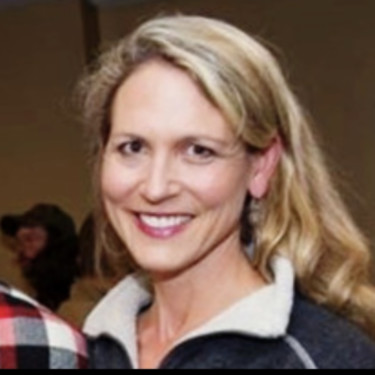By the time I reached the end of my third year of my family medicine residency, facing my future as an attending physician, I realized that I had much more knowledge to gain. As much as I knew about the specialty of family medicine, there would always be more to know about patients and their specific needs, as well as the environment from which they come. With this in mind, I pursued a preventive medicine fellowship and master’s degree in public health.
After starting and running my own medical practice, I realized that there was an entirely different set of knowledge and skills related to being a business owner that I didn’t have, and that had not been addressed in any of my prior training. I wanted a better understanding of everything integral, but tangential, to medicine: finances, marketing, communication, leadership.
As a lifelong learner, I knew that more training would only provide me with invaluable insights that could complement the understanding I’d gained about medicine. So, I enrolled in business school, and after receiving my MBA, pivoted to a PhD in leadership studies. Though neither of these later degrees were related to medicine, they have each been directly applicable to my work as a medical doctor and leader. Below, I share what I’ve learned from the process of continuing my education.
1) Studying Alongside Non-Clinicians Can Help You Gain a Deeper Appreciation for Those Who Work in Non-Clinical Areas of Health Care, and Outside of Health Care Entirely
In earning each of my non-medical degrees, I learned as much from my fellow students as I did the coursework. In my MBA, the majority of the students came from outside of clinical medicine. Studying alongside them helped me value professional specialties such as human resources and revenue cycle management.
Similarly, in the PhD classes, there were a significant number of educators and educational leaders. I found that these professionals were struggling with many of the same issues we do in health care, e.g., how to engage individuals in behavior change or help them parse complex subjects. Many classroom teachers told stories of children who came to school hungry, or wearing inadequate clothing for the weather. These children were so impacted by their circumstances that their learning was impaired. This reminded me of the many social determinants of health that we deal with in health care daily. Whether we are educators or clinicians, we are all confronted with much larger problems of society than we may have once anticipated. Being reminded of this reality strengthened my resolve to reach out to non-clinical community stakeholders in an effort to understand how future collaboration might be possible as we seek to address these issues.
Knowing that I worked in medicine, many of my MBA and PhD classmates and professors shared their own experiences of illness and healing. They provided insight into the challenges of health care that we on the “inside” may not always hear directly. They described their concerns about an inability to access primary care and preventive services, and the challenges of dealing with mysterious undiagnosed problems. I returned to my clinical and leadership roles with a new understanding of how we in medicine may better connect with those for whom we care.
My classmates also taught me a lot about integrating new teaching and learning techniques into the practice of medicine. In their professional roles, my classmates were using a broad range of technologies to reach the audiences they worked with. I gained experience in self-publishing, podcasting, and graphic design. This was a significant departure from the skills I had learned in medicine.
2) Studying Leadership Holistically Can Help You Understand How to Effectively and Realistically Implement Leadership Tactics
While in my MBA, I grew increasingly intrigued by ways of motivating individuals and groups to work together to build sustainable systems, for the betterment of the larger community. By the time I finished that degree, I realized that I needed to know more about leadership. Seeing the benefit I had gained by looking at medicine through the fresh lens of an MBA student, I wanted to keep moving my thinking forward. Thus began my doctoral studies.
There was much benefit to my PhD. For one, I was able to reflect on my own leadership journey via an autoethnography, and ended up realizing that I was interested in moving toward a team-based model of care. For another, I had the opportunity to interview my colleagues for their thoughts on “leading through change in a health care delivery organization” — a study that ended up becoming part of my dissertation.
The interviews I conducted for this study were highly useful for understanding how and when leadership theories are put into practice, and where theorizing falls short. Essentially, I learned that as with clinical practice, we need to see evidence that research can be effectively translated into practical application. This requires flexibility of thinking. Just as blood pressure medications impact different patients in ways that are unique to their biology, leadership tactics taken from transformational or servant leadership approaches will impact people and groups in ways that are unique to their context. There is no “one size fits all.” Our aim should be “one size fits many,” as we seek to be inclusive of all — patients, practitioners, and staff alike.
3) Leaning on Others for Time Management Support Can Keep You Accountable
Having earned both my MD and MPH while giving birth to and raising three small children, I knew that time could often be an obstacle. This had shifted by the time I began my MBA. By then, I had recently sent my youngest off to college, and my focus was entirely on a new role in a new organization. I needed to juggle longer work hours, a significant commute, and a much more expanded set of professional duties with MBA and PhD classes. I dedicated evenings and weekends to taking classes and finishing both individual and group assignments. Knowing that our grades depended on the effort that each of us put forth, my fellow classmates and I relied on continual communication via text, email, and Zoom calls.
At the end of my PhD, when I was focused solely on the dissertation, my biggest time management challenge was simply remaining motivated to complete something that was entirely up to me. To make it work, I learned to lean on my PhD dissertation chair. Our (at least) weekly Zoom conversations, emails, and shared documents kept me on top of deadlines, and our shared work on the dissertation research taught me how to approach one of the most important intellectual aspects of a PhD: contributing to the knowledge base in one’s area of study. I needed to remain internally motivated to do the work, with the help of the external motivation of my dissertation chair. His interest in my topic, and expertise in the process of completing the research and dissertation, were complemented by his obvious investment in my development as a scholar. This reminded me of the investment each of us make in patients, families and our clinical colleagues. We build trusting relationships, which leads to better care and to the co-evolution of each of us as people. When we rely on others, and know that others rely on us, we are able to accomplish more than any of us could accomplish alone.
In seeking to find ways to be a good doctor and leader, I doubt that I will ever stop wanting to learn more. This is a humbling life state, and one that does not always feel comfortable. Maintaining a beginner’s mindset means acknowledging that I don’t — and will never — know everything. Having a doctorate in leadership studies does not equate automatically to being a great leader, just as having a doctorate in medicine (MD or DO) does not equate automatically to being a great doctor. Our patients and colleagues may respect the work we have done to earn degrees, but the degrees themselves are not what provides value. The benefit of education comes from how it is used. This is true no matter what field we are in. As for me, I hope to use my recent education to connect with others on how we might lead through the many changes we are currently facing in medicine and health care today. The connections I’ve made, both educationally and professionally, are as important as the subject matter itself.
Do you have additional degrees beyond your medical one? Share your schooling journey in the comments!
Dr. Lisa Belisle is a family physician and associate chief medical officer with a rural Maine health care system. She loves running the wooded trails on the island where she lives, and boating the nearby waters with her husband and their six grown children. Watch her weekly video podcast on radiomaine.com. Dr. Belisle is a 2023–2024 Doximity Op-Med Fellow.
Illustration by Diana Connolly







